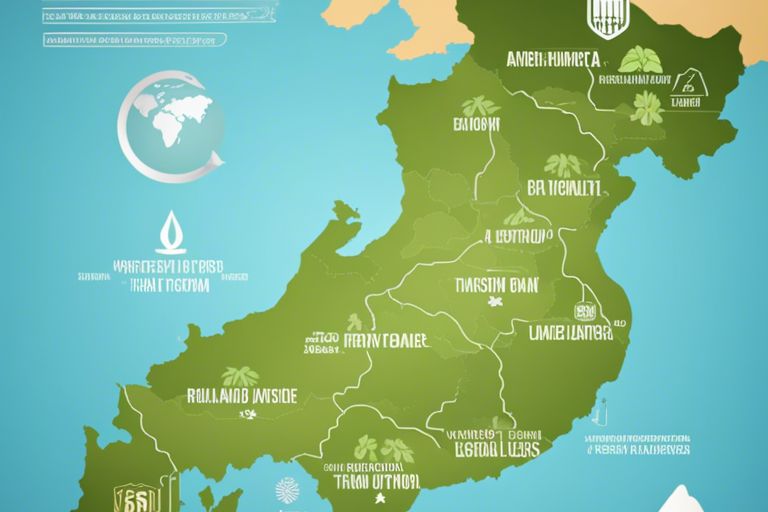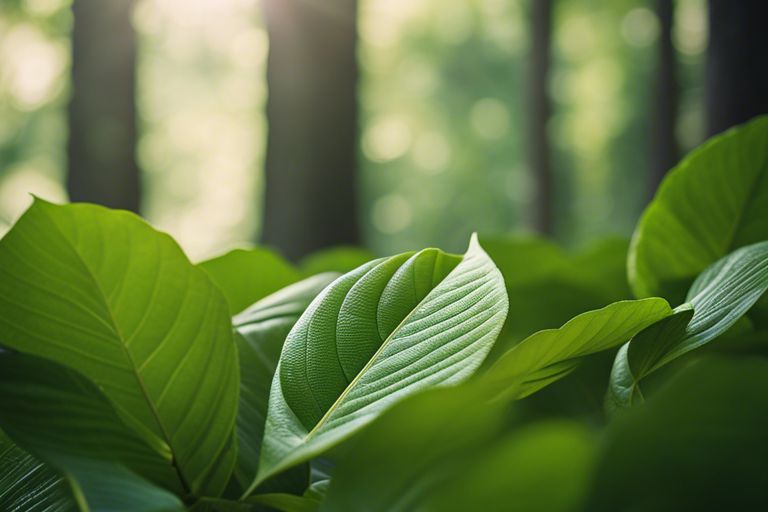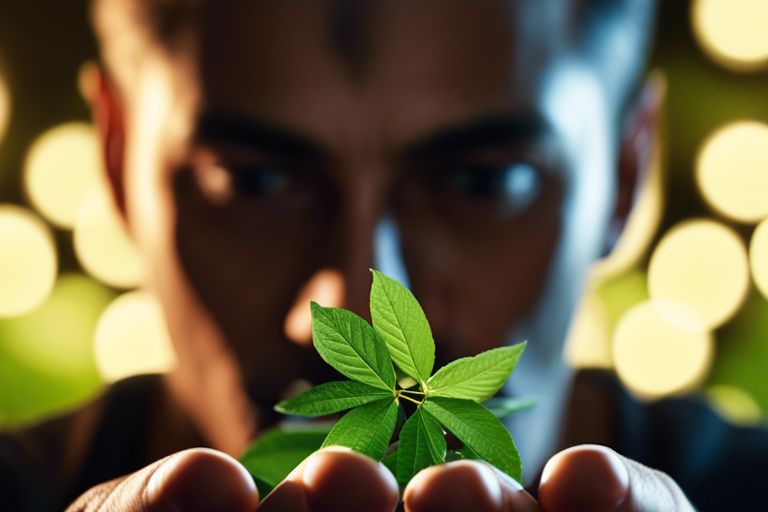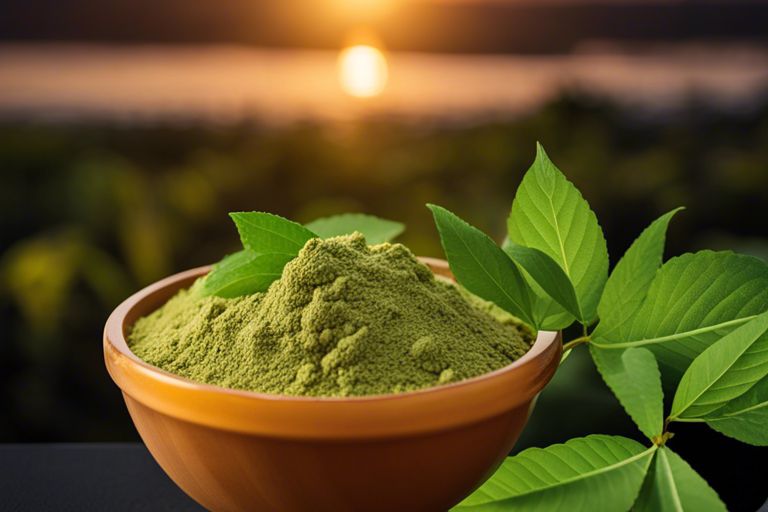Kratom, a plant native to Southeast Asia, has sparked debates worldwide. In the land where it originated, Thailand, the legality of kratom remains a complex issue. Delve into the laws, controversies, and cultural significance surrounding this botanical substance in this informative exploration.
Key Takeaways:
- Kratom Legalization in Thailand: Kratom, a tropical tree native to Southeast Asia, was officially decriminalized in Thailand in August 2018.
- Cultural and Traditional Use: Kratom has a long history of use in Thailand for its medicinal and cultural significance, particularly among manual laborers looking for a natural energy boost.
- Regulated Consumption: Although now legal in Thailand, the government strictly regulates its production, distribution, and sale to curb abuse and ensure public safety.
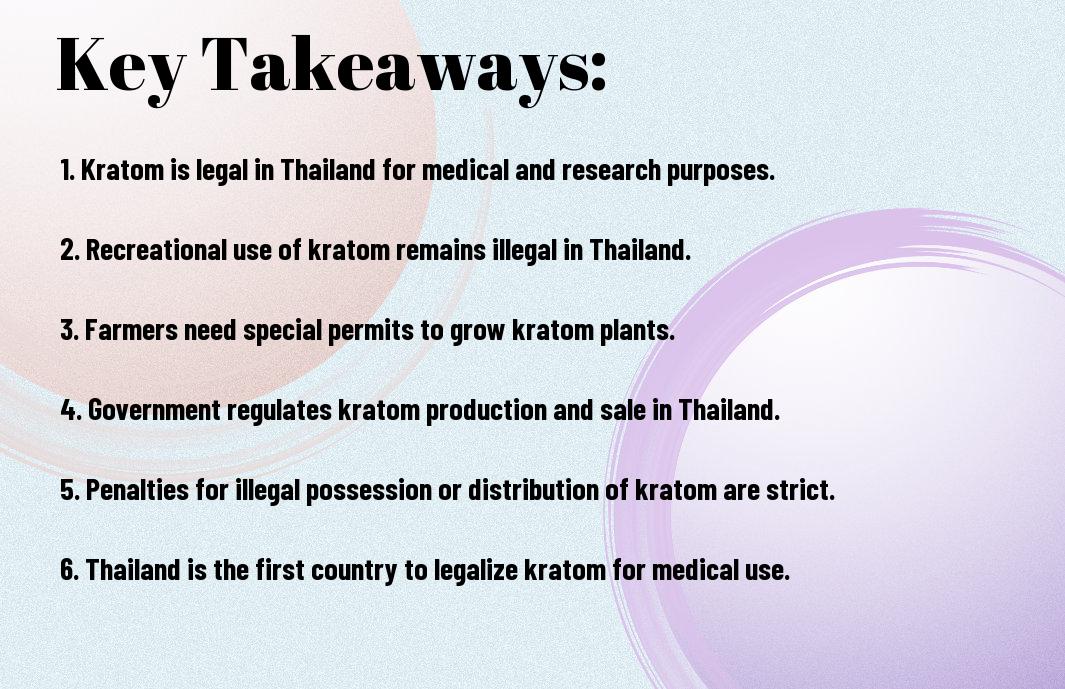
A Brief History of Kratom in Thailand
Before venturing into the current legal status of kratom in Thailand, let’s take a look at the fascinating history of this plant in the country.
Traditional Use and Cultural Significance
One of the most intriguing aspects of kratom in Thailand is its traditional use and cultural significance. For centuries, kratom has been utilized by Thai laborers and farmers for its energizing and pain-relieving effects. It was often chewed or brewed as a tea to combat fatigue and increase productivity during long working hours in the fields. Additionally, kratom held spiritual importance in some Thai communities, where it was used in traditional ceremonies and rituals.
Early Legal Status and Restrictions
Significance of kratom in the early legal landscape of Thailand cannot be overstated. In the early 20th century, the Thai government implemented a series of laws and regulations that initially restricted and later banned the sale and consumption of kratom. This move was largely influenced by political and economic factors, as well as pressure from Western powers to control the use of this natural substance.
Although kratom was outlawed in Thailand in 1943 under the Kratom Act, the plant continued to be widely used in rural areas despite the legal restrictions. The ban on kratom sparked a thriving underground market for the plant, leading to continued controversy and enforcement challenges for authorities.
The Legal Landscape
It is crucial to understand the legal landscape surrounding kratom in Thailand to grasp the current situation. Thailand has a complex history with kratom, with laws and regulations evolving over time.
Current Laws and Regulations Surrounding Kratom
Legally, in Thailand, kratom has been classified as a Category 5 narcotic since 1943 under the Narcotic Drugs Act. This made the cultivation, possession, import, export, and consumption of kratom illegal in the country. However, there have been recent discussions and developments regarding the legalization of kratom for medical and research purposes.
Government Agencies Involved in Kratom Regulation
Currently, the key government agencies involved in kratom regulation in Thailand include the Food and Drug Administration (FDA), the Department of Medical Sciences, and the Thai Narcotics Control Board. These agencies oversee the enforcement of kratom laws and regulations in the country.
Plus, there has been growing support from certain sectors within the Thai government to decriminalize and regulate kratom to harness its potential benefits while ensuring public safety. The involvement of these agencies signals a potential shift in the legal status of kratom in Thailand.

The Illegal Years (1976-2018)
The Ban on Kratom and Its Consequences
All throughout the years 1976 to 2018, kratom was considered illegal in Thailand. This prohibition stemmed from the Kratom Act of 1943 and was further reinforced under the Narcotics Act of 1979, categorizing kratom as a type-5 narcotic alongside cannabis and magic mushrooms.
Black Market and Illegal Trade
To navigate the ban on kratom, a black market emerged for the illegal purchase and sale of this plant. In the shadows, an illicit trade in kratom thrived, with underground networks distributing the substance discreetly despite the legal ramifications. This clandestine market not only fueled criminal activity but also posed risks to users due to the lack of quality control and regulation.
The black market for kratom in Thailand was a hazardous environment where the purity and safety of the product could not be guaranteed. Users faced the danger of consuming contaminated or adulterated kratom, leading to potential health risks. Despite the risks involved, the demand for kratom remained persistent, driving the underground trade to continue operating in the shadows.
The Path to Legalization
Advocacy and Lobbying Efforts
After years of being labeled as a narcotic and banned in Thailand, kratom advocates and activists began their uphill battle towards legalization. Advocacy groups such as the Thai Kratom Association tirelessly worked to educate lawmakers and the public about the benefits of kratom and the need for its legality. Their efforts included lobbying campaigns, public demonstrations, and collaborations with researchers to present credible data supporting their cause.
Scientific Research and Studies
With mounting pressure from advocacy groups, the Thai government started to open up to the idea of legalizing kratom. Scientific research played a crucial role in this shift. Studies highlighting the medicinal properties and low potential for abuse of kratom provided the government with empirical evidence to reconsider their stance on the herb.
To further strengthen their case, researchers conducted clinical trials that showcased how kratom could be a safer alternative to traditional opioids for managing pain and other medical conditions. This scientific backing was pivotal in swaying public opinion and convincing policymakers of the need for legalization.
Understanding the science behind kratom was necessary in dismantling misconceptions and fears surrounding the herb. By dispelling myths and presenting solid research findings, advocates and researchers were able to pave the way for kratom’s journey towards legality in Thailand.
Current Legal Status
Despite the intricate legal landscape surrounding substances like Kratom in Thailand, there has been a shift towards more progressive attitudes. According to Marijuana, Hemp, and Kratom in Thailand, the current legal paradigm reflects a complex interplay between decriminalization, regulation, and licensing requirements.
Decriminalization and Regulation
Any changes in the legal status of Kratom in Thailand have been influenced by the decriminalization and regulation efforts in recent years. While the plant remains a controlled substance under Thai law, there have been initiatives to explore alternative approaches to its use, shifting away from strict criminal penalties towards a more nuanced regulatory framework.
Licensed Kratom Farms and Production
For those looking to engage in the cultivation and production of Kratom in Thailand, the establishment of licensed farms has presented new opportunities. Plus, with proper oversight and adherence to regulations, these licensed operations can help ensure a safer supply chain and quality control measures are in place. This move towards legality can also help combat illicit production and promote responsible practices within the industry.
Can the Legalization of Kratom in Thailand Affect the Outcome of the Class Action Lawsuit?
The legalization of kratom in Thailand could potentially impact the outcome of the kratom class action lawsuit. If kratom becomes legally recognized, it might bolster the argument for its safety and efficacy, potentially influencing the court’s decision in the class action lawsuit.
Challenges and Controversies
Now let’s probe into some of the challenges and controversies surrounding the legal status of kratom in Thailand. One major issue is the lack of stringent quality control measures in the production and distribution of kratom products, which raises safety concerns among users.
Quality Control and Safety Concerns
One key issue is the variability in the quality and potency of kratom products available in the market. Without proper regulation and oversight, there is a risk of contamination or inconsistencies in the concentration of active compounds, posing potential health risks to consumers.
International Pressure and Diplomatic Relations
Quality control and safety issues have also attracted international attention, with some countries expressing concerns about the impact of unregulated kratom trade on public health. The pressure from foreign governments has put Thailand in a delicate position, balancing its domestic policies with international expectations.
International relations can be strained when one country’s drug policies conflict with another’s, especially when it comes to substances like kratom that have a controversial status. Finding common ground and navigating diplomatic waters become crucial in such scenarios to maintain positive relationships and address shared concerns.
To wrap up
Hence, the status of kratom in Thailand is a complex issue with historical roots and conflicting perspectives. While the plant has been traditionally used in Thai culture for centuries, it was banned for a period due to concerns about its psychoactive effects. The recent legalization for medical use signifies a potential shift in attitudes towards kratom, but the regulations surrounding its cultivation and distribution remain stringent. As Thailand continues to navigate the complexities of kratom legality, it will be fascinating to observe how this ancient plant intersects with modern laws and societal norms.
FAQ
Q: What is Kratom?
A: Kratom is a tropical tree native to Southeast Asia, known for its leaves that have medicinal and recreational properties when ingested.
Q: Is Kratom legal in Thailand?
A: Yes, as of August 24, 2021, Kratom was removed from Thailand’s list of controlled substances, making it legal to possess and sell in the country.
Q: Why was Kratom banned in Thailand?
A: Kratom was banned in Thailand in 1943 due to taxation issues and competition with opium sales, but the ban was lifted in 2021 as the government recognized its potential economic and medicinal benefits.
Q: What are the regulations surrounding Kratom in Thailand?
A: While Kratom is now legal in Thailand, certain regulations exist, such as prohibiting its sale to minors and restricting the amount that can be purchased at one time.
Q: Can tourists consume Kratom in Thailand?
A: Yes, tourists can legally consume Kratom in Thailand, but it’s advisable to familiarize themselves with local regulations and only purchase from reputable sources.
